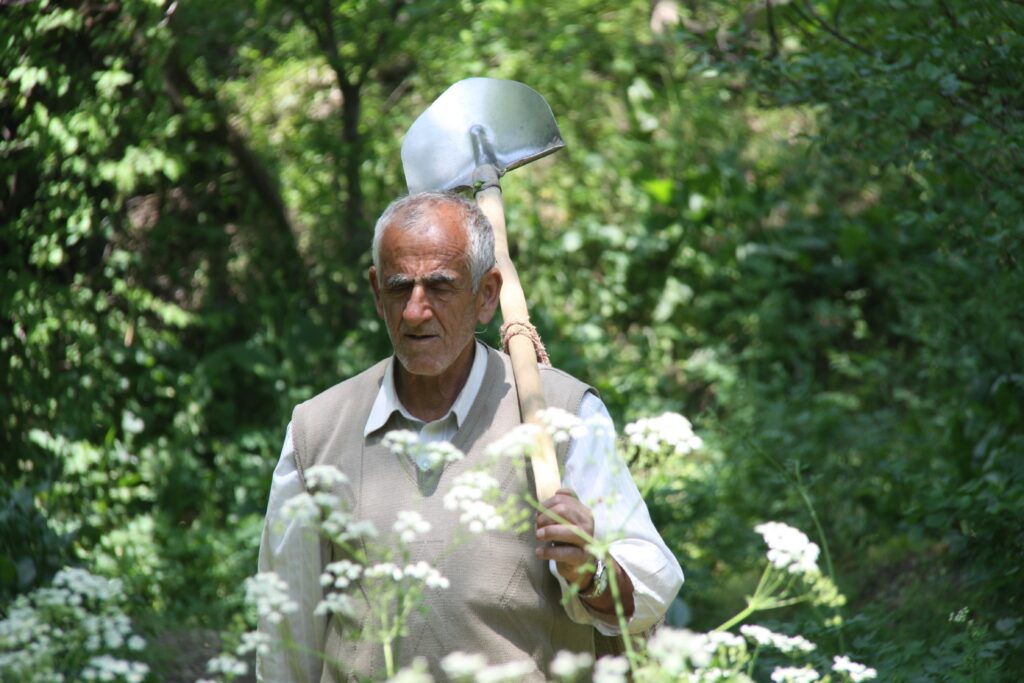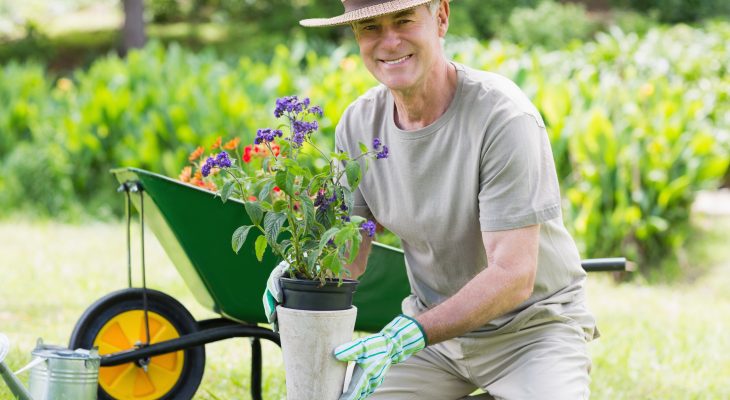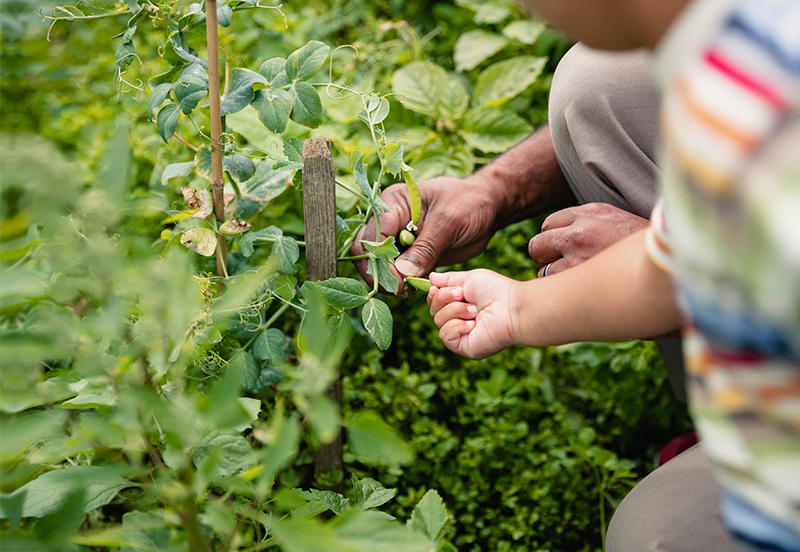Even the fittest bodies change with age. For younger people, gardening may seem like a pretty basic activity, but aging comes with considerable physical challenges that can make gardening more difficult and less enjoyable than it should be.

To make it easier for your elderly loved one to start or keep on gardening, consider the following tips and ideas:
- Make sure your loved ones get the assistance they need when it comes to physically challenging tasks such as lifting, weeding, pruning, working the soil, etc.;
- Build raised beds or arrange the space for container gardening to minimize the need for bending and kneeling;
- To cut down on watering, install an irrigation system. Drip irrigation is the best choice for indoors and smaller open spaces;
- Make sure that the garden space has enough shade, or provide adequate sun and heat protection. Make sure there are benches or chairs under shady areas to take a break during gardening. Encourage them to mostly work in the mornings or evenings (when the temperatures are cooler and the sun is low).
Gardening Despite Disability and Functional Limitations
In the twenty-first century, gardening as a hobby is thankfully available to everyone, including disabled individuals and those with serious physical limitations. All you need to do is consider what the issues are, and find a suitable set of gardening aids, equipment and solutions.

If moving around is a challenge, creating vertical gardens by growing vining plants upward is always an option. In case of opting for traditional gardening, look for the tools that are lightweight and easy to handle. Depending on the functional limitations that need to be dealt with, the solutions could include equipment for arm support, steps to ease kneeling down, long-handled tools, easy-grip and extra light tools, or even a no-bend stand-up weed grabber (great for lazy young gardeners, too!)
The range of equipment and tools that may help reduce joint strain and physical stress is truly endless, so nothing should prevent your loved one from indulging their gardening hobby. In fact, gardening is one of the most beneficial hobbies out there to exercise your body and your brain!
Health Benefits of Gardening for Seniors
In addition to providing delicious fresh vegetables and fruits as well as beautiful flowers, gardening also can do wonders for health and well-being. Listed below are just a few health benefits of gardening daily for seniors:
- reduces stress, improves mood, and increases subjective well-being
- maintains flexibility and mobility
- improves strength and endurance
- prevents or slows down cognitive decline
- helps prevent disease
- boosts rehabilitation in stroke and heart disease patients
- benefits bones and immune system
But it doesn’t end there. Elderly people are especially vulnerable to loneliness and isolation, and there is no better way to overcome loneliness than adopting a hobby that connects one with others.

Community gardening improves older people’s quality of life by:
- stimulating social interaction
- creating opportunities for recreation
- encouraging self-reliance
- producing nutritious food
Young or old, healthy or struggling with mobility, gardening is beneficial for everyone and anyone. We hope that the ideas discussed in this article will help anyone keep up gardening!
